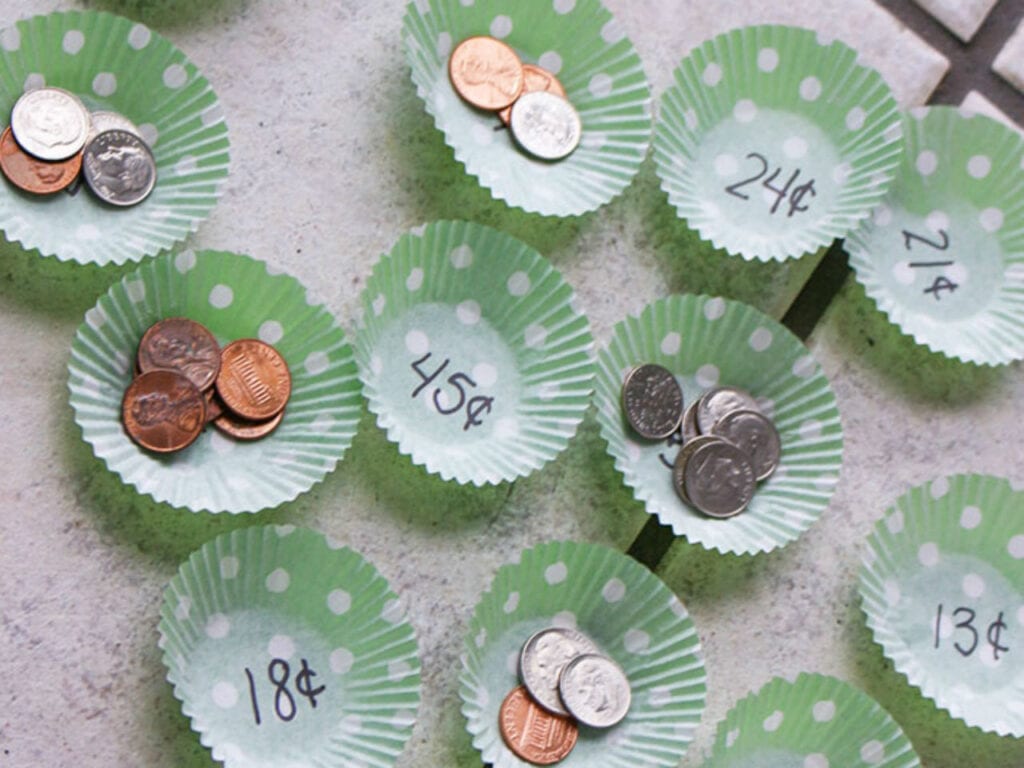The lessons your children learn even before they get to the school are the lessons they learn from you – and these are lessons that last a lifetime! Think about it.
At this young age, they should also learn about money-saving habits the same way as you teach some common-sense lessons.
There are many aspects to money, and spending money is just one of them. The biggest roadblock to a healthy financial foundation for many kids is the fact that “spending money” is the only aspect kids are aware of. It’s less often that kids see their parents saving money, or investing money, or even sharing money, as with a church or charity.
The fact is that many parents do these things, but it’s less visible. And between all the media outlets today, waving products in front of your kids, there are plenty of messages out there that speak to children about spending money but not much about saving, or investing.
Remember, we can’t know what we haven’t learned! So if they don’t see it from you, and they don’t see it in the world around them, they simply don’t learn about it.
How to Teach Money Savings Habits
1. Start Talking About Money At Home

The first way is to talk about money at home. Do you ever remember talking about money at home? If not, start now. Some families might regard talking money at home as something which needs to be avoided but in fact, talking money is a kind of exposure for your kids to know about good money-saving habits.
2. Build Visual Representation

Keep in mind that kids normally learn something based on visual perceptions. They need to see concepts and practices in order to understand something new in life. The earlier you teach them, the better as kids who learn to save at an early age have a great advantage to practice good financial management when they become adults.
As we know money comes in different shapes and sizes while different units of money have different values that can be used for different deals and purposes.
3. Show You, Kids, About Choices

Show your kids about choices in life and apply these concepts in daily life for example when you go shopping. Show them how to make deals using money so they can understand the importance of money and the benefits form good saving habits. Try to relate the discussion with the family’s financial situation so they can understand better.
4. Create a Family Bank

One more nice suggestion is to prepare a family bank. You can prepare a money box where every family member can put their money into it at home. Teach your kids to save daily by giving them some amount of money and show them how important it is to save money and avoid wasting it. This is an effective way to make them understand how important good money-saving habits are.
5. Reward Your Children

Giving an incentive for reaching a goal is a good way to keep your son/daughter interested and passionate about saving. Achieving the target encourages a sense of happiness and pride. Success should always be praised. Targets have to be reasonable and fair for the child to be encouraged.
Moreover, you can give them some kind of pocket money throughout the year and create a sense of saving, which they can cheer while breaking the bank. In this way, you can encourage them by watching their savings grow, which can be an incentive for them too.
6. Get Them a Piggy Bank

It’s the smartest way to encourage your kid about money-saving habits by borrowing a piggy bank, allowing them to save their money and watch the bank until it fills up. You can also help them opening kids saving accounts to know the money-saving habit of the real-world. Make sure, you teach them how to check their balance so they can monitor their growing savings. This will be the greatest factor to keep them motivated and encourage them to continue their saving habit for the future.
7. Introduce Money Saving Games

While some of the more abstract concepts behind money cannot be fully understood until about age 10, there are some fun and educational kid’s money games for younger children. This particular game is appropriate for kindergarteners through about grade two or three depending on the child’s math skills.
Gather at least ten of each type of coin and a dice. Take turns rolling the dice and give out one penny for each number rolled. When the child has five pennies, have them trade it in for a nickel. Once they have two nickels, a dime, etc. The first one to get a quarter wins.
For younger children or those who may have more difficulty with math, try just using pennies and one other type of coin. Adjust the goal accordingly. For example, if you’re using pennies and dimes, the first one to gather three dimes wins.
This method has been a great learning tool for teaching my kids how quickly pennies can add up. It also reinforces the fact that fewer coins don’t necessarily mean less money. Three dimes, for example, is better than fifteen pennies.
As a bonus, let your kids keep their winnings. The next time they ask for something at the market, set up a goal for them to gather enough coins to buy it themselves. Using easy kids money games like this one is a fun and rewarding family activity for everyone.
Conclusion
Never think it’s too early to teach your kids about good money-saving tips because as they are growing up, they will be involved with money in every aspect of their life.
A temptation to indulge one’s offspring is natural in every parent, children who grow up without learning the value of money and the consequences of extravagance may be heading for disaster if their bad money management leads them down the slippery slope of financial bankruptcy and debt problems.
It is important to start inculcating sensible money management habits in children. This can help prevent them from developing extravagant spending habits or falling into the trap of living beyond their means through credit cards.
Check also https://sifinances.com/blog/how-to-teach-the-importance-of-money-to-your-children/
 Imagup General Magazine 2024
Imagup General Magazine 2024



